"Passing The Torch:" Epilogue
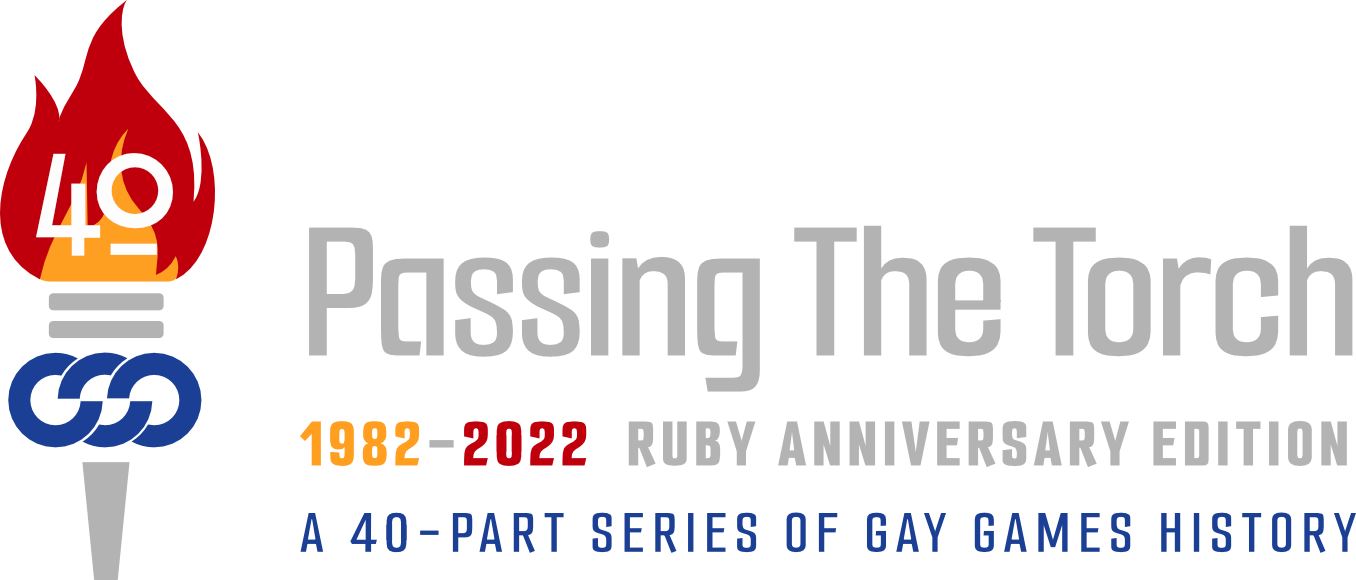
Produced and curated by Federation of Gay Games Archivist Doug Litwin and FGG Honourary Life Member Shamey Cramer
with Ankush Gupta, FGG Officer of Communications
Read the entire "Passing The Torch" series as it is posted daily HERE.
Post 40b of 40 - 5 September - Epilogue
“Passing The Torch: Ruby Anniversary Edition” is a factual timeline of the major events that have been part of the Gay Games evolution since its inception. The series will run from 28 July 2022 - one month before the 40th anniversary of the original Opening Ceremony at San Francisco’s Kezar Stadium - through 5 September, the anniversary of Gay Games I Closing Ceremony. All postings will remain online and available for viewing at the FGG website.
* * *
“Find the present in the past to understand the world”
- Shamey Cramer
Today, as we complete our “Passing The Torch” series commemorating the 40th anniversary of the first Gay Games Closing Ceremony, and the joy and transformation it brought to the LGBTQ+ community and its allies, we also reflect on one of the most tragic events in sports history: the 50th anniversary of the targeted attack on 5 September of Israeli athletes and coaches at the Munich 1972 Summer Olympic Games.
Early in the morning of 5 September, Palestinian terrorists broke into the Olympic Village. During the following 21-hour siege, two members of the Israeli team were killed at the Olympic Village, with another nine hostages, five of their attackers and one German police officer killed in a failed attempt to free the hostages at the airport, only 20km/12 miles from Dachau, the site of a Nazi concentration camp during World War II.
When Tom Waddell, Mark Brown and others launched San Francisco Arts & Athletics and the first Gay Games, ten years after the Munich Massacre, there were very few protections for the LGBTQ+ community anywhere in the world, and there were even fewer opportunities for the community to come together in such a public and celebratory manner.
Forty years ago, the relationship between the Gay Games and Olympic Movement was extremely adversarial. Thanks to the concerted efforts of those from within the Federation of Gay Games, working with those from the United States and International Olympic Committees, progress and acceptance has been achieved.
Since 1988, when U.S. Equestrian Robert Dover became the first “out” Olympian in competition, more and more Olympians now compete openly as members of the LGBTQ+ community, with several noteworthy moments at each subsequent Winter and Summer Olympic Games.
The Gay Games family joins in solidarity with the Olympic Movement as we commemorate both of these events that transformed sport forever: one with joy, the other with sorrow.
We are honoured to close out this series with words from one of those responsible for this transformation: Jochen Färber, the Head of Olympic Channel Services, based in Lausanne Switzerland. Jochen was a volunteer for Gay Games VIII: Köln 2010 and in 2013, as Head of the Executive Office of the IOC President, was instrumental in setting up the Paris meeting between IOC President Thomas Bach, FGG representatives Emy Ritt and Mark Naimark, and the Russian LGBT Sport Federation Co-Presidents, Elvina Yuvakaeva and Konstantin Yablotskiye.
* * *
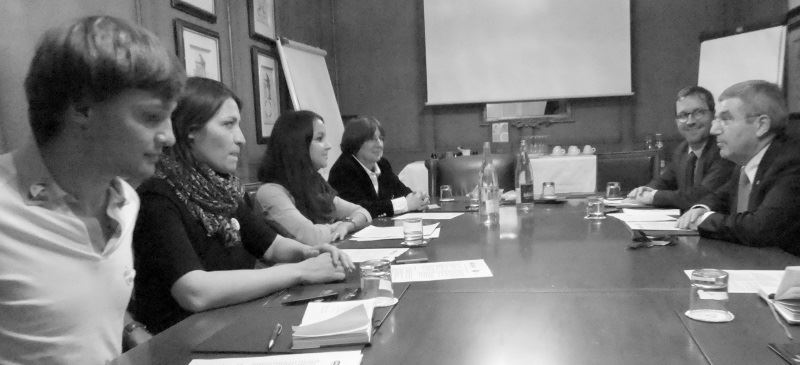
The historic IOC meeting in Paris in 2013. Jochen Färber is second from right, alongside His Excellency, Thomas Bach, the ninth and current President of the International Olympic Committee.
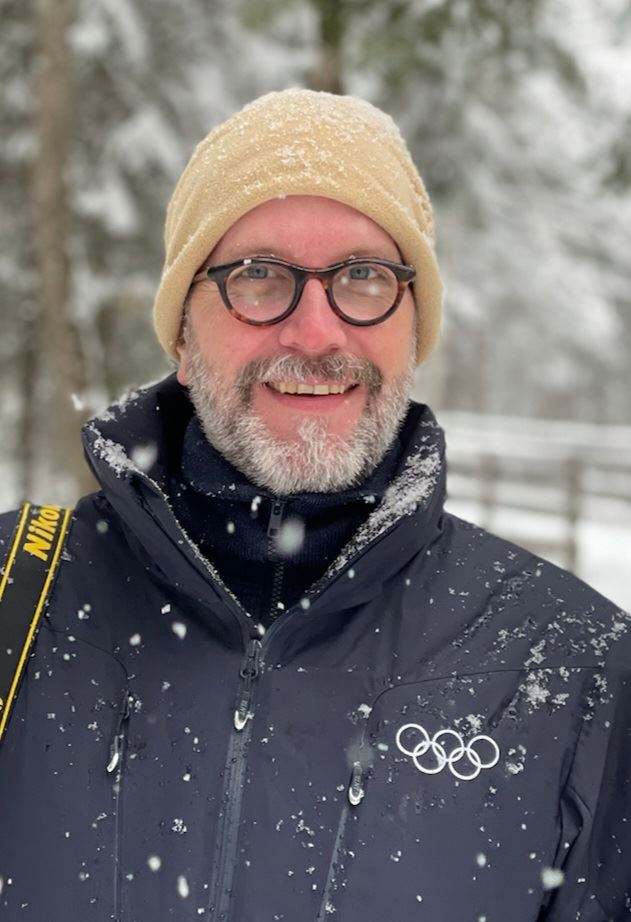
Jochen Färber
JOCHEN FÄRBER: The November 2013 meeting in Paris between the IOC, FGG and Russian LGBT Sport Federation was important. The aftermath of this meeting led to more action and meetings during the 2014 Olympic Winter Games in Sochi, Russia that I found cool and made an impact.
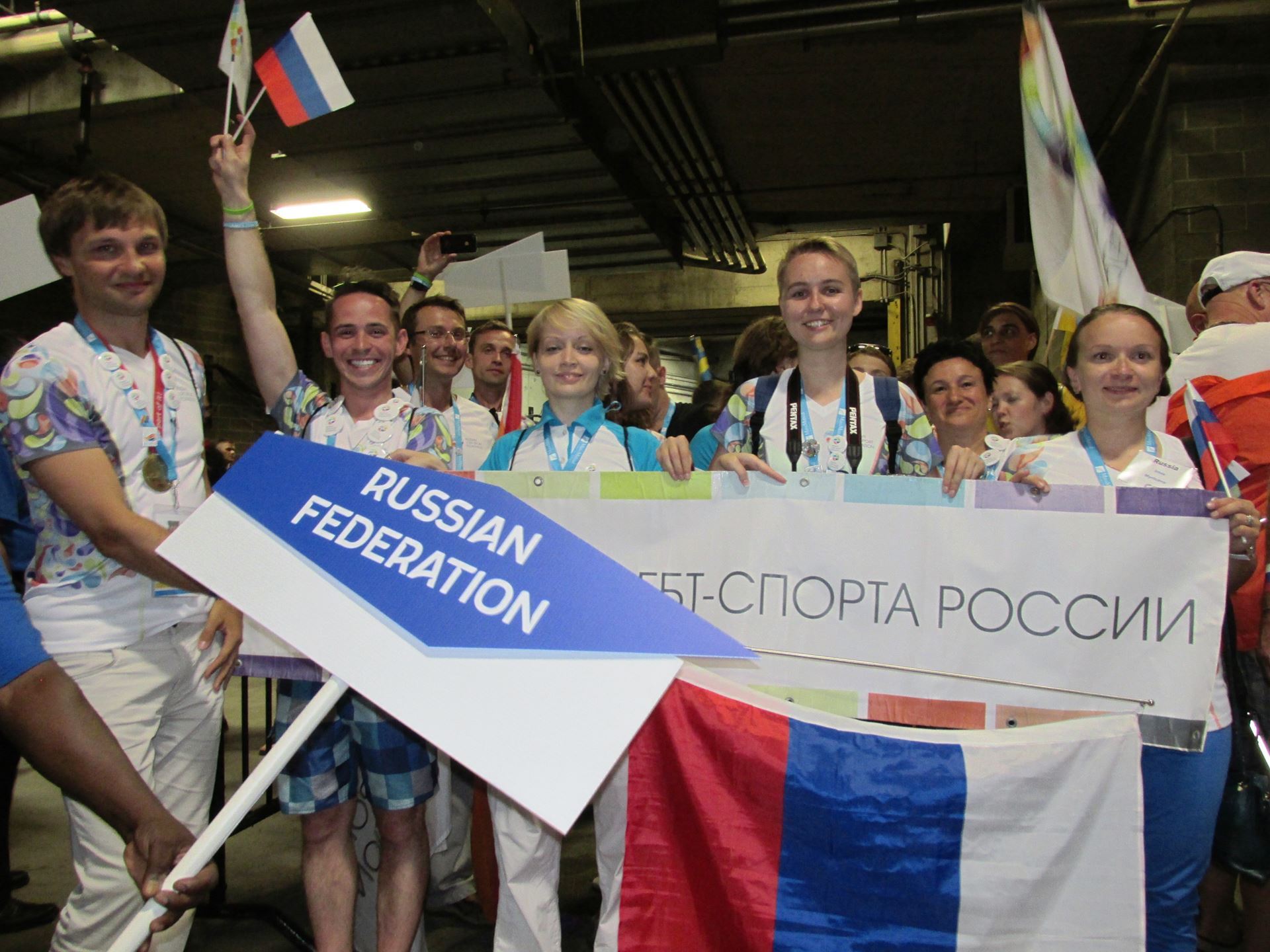
Konstantin Yablotskiye (far left) with Russian Sport Federation athletes at GGIX Opening Ceremony in 2014

World Champion and Olympic figure skater Randy Gardner with Konstantin in Los Angeles - September 2013
Konstantin Yablotskiye, the Male Co-President of the Russian LGBT Sport Federation, won a gold medal at Gay Games VIII: Köln 2010. He gained much attention in the Russian media after this, and lost his credentials to be a figure skating judge. But at Sochi, he had tickets to attend events and was allowed to move freely about, as were others. Konstantin attended the figure skating events with marketing materials promoting the Open Games, the LGBT sport festival held in Moscow in early 2014, and was not kicked out.
We also had good discussions with the Vancouver 2010 Olympic Pride House representatives. Due to Russian laws against promoting anything LGBT, having a Pride House in a public area in Russia was a “no go”.
When their delegation came to us in Sochi to complain that there was no official “Rainbow House” within the Olympic Village or its perimeters, we said it was not needed because the Olympic Village is for everyone, free of discrimination, and that is the magic of it. The IOC was not keen to create a list of examples or provide a space for who or what should not be discriminated against inside an Olympic-controlled area during the Games.
We had another example in Sochi where a transgender person held up a sign against the Russian law inside the public area of the Olympic Park. And no one did anything. They were surrounded - on purpose - by many journalists. This was organised as a provocation to see that the authorities would act against them and nothing happened. The group was disappointed, so they decided to enter a sports venue. That was a scenario, as I stated before, was a no go in a public area.
The consequence was that the authorities held this person for three hours to check their identity. Finally, the accompanying media had their story. Personally, I did not like the action of that group.
I was approached many times by American journalists to comment on the homophobic Russian legislation. And the only thing I always said: it’s easy to scream about discrimination from thousands of kilometers across the ocean. Although I do not agree with the legislation, if you study some of the rights (or better, the non-rights) in some US states, some of them have legislation that is even worse than the ones in Russia at that time. And I am not sure if it has gotten better or worse since that time.
One thing the IOC tries to make clear - and not everyone in the LGBT community understands this - is that the Olympic Games are an event that promotes full inclusion: no discrimination at all for whatever reason.
* * *
To read more about the Munich 1972 Summer Olympics, and to see videos commemorating the events, please click HERE
* * *
There have been many advancements for LGBTQ+ rights around the world, including the ability to marry in thirty-two countries. But there are still many places where laws exist to punish those who pronounce their true feelings to live openly, including capital punishment.
According to the 2019 International Lesbian, Gay, Bisexual, Trans and Intersex Association (ILGA) report on state-sponsored homophobia, thirteen countries have legislation where being gay is legally punishable by death.
In the United States, LGBTQ+ rights are under attack, from bans against transgender individuals, to those wishing to remove the rights and protections for the LGBTQ+ community that have come about in the past forty years. And many of the attacks we see today are the same ones we faced forty years ago.
Taiwan is the only Asian country where marriage equality exists; and South Africa the only country on the African continent. Thus, when people ask “do we still need a Gay Games?”, the obvious answer is yes; yes we do.
The FGG has faced much criticism, both externally and from within its own organization, following its selection of Hong Kong to host Gay Games 11. Due to Hong Kong’s relationship with the People’s Republic of China, as well as the global coronavirus pandemic, the Hong Kong Gay Games 11 organizers have faced unprecedented challenges - challenges unlike any other faced by a Gay Games Host organization.
Given the lack of rights for the LGBTQ+ communities across Asia, hosting the first Gay Games in Asia will make an important, and much-needed statement.
When it became necessary to postpone the Games until 2023, the FGG Board took the bold move to invite Guadalajara, a bid finalist for both Gay Games XI and XII, to serve as co-host, in order to quell the fears of those concerned about their well-being traveling to Hong Kong.
But no matter the challenges, or the change in FGG personnel or host organizations, the Gay Games will continue to grow and thrive; and serve as a reminder to the LGBTQ+ community and the world at large the importance of the Gay Games motto of Participation, Inclusion and Personal Best™.
* * *
“Athletically speaking, the Games are not about competition alone, they never were. They are about participation and self-fulfillment. They are not just a one-week event, they are a continuous process. They're symbolic in the Gay movement in a way that is assertively free of discrimination. They're symbolic of friendship and fun and they are for everyone.”
- Dr. Thomas F. Waddell
April 1983
EPILOGUE
by
Jessica Waddell-Lewinstein Kopp
Growing up with the Gay Games over the last 40 years, I’ve had the opportunity to be raised in a community that values love, acceptance, and equality above all else. Values that are intrinsic for us to create a supportive culture that sees beyond our differences and gives people the freedom to live their authentic selves.
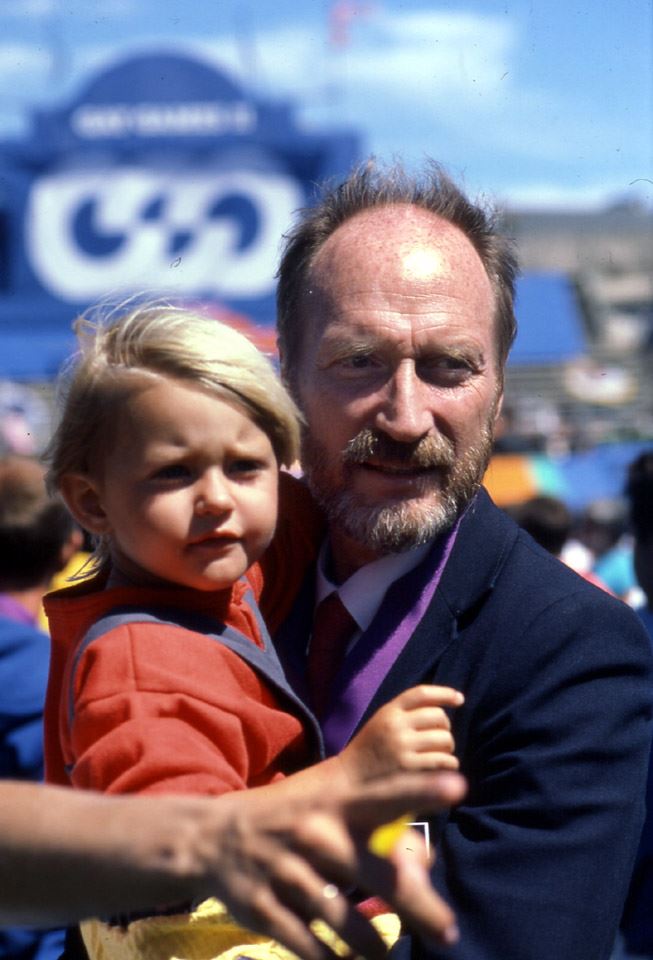
.jpg)
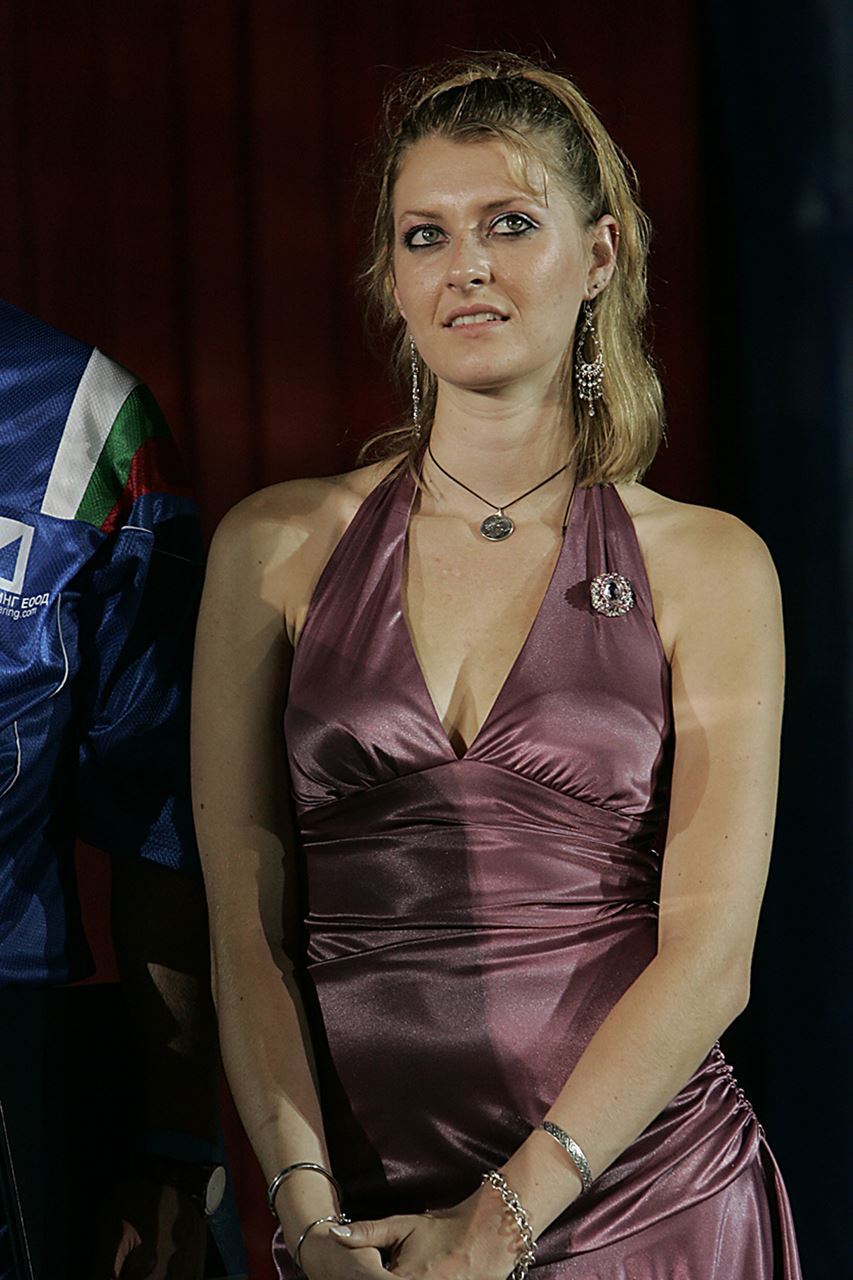
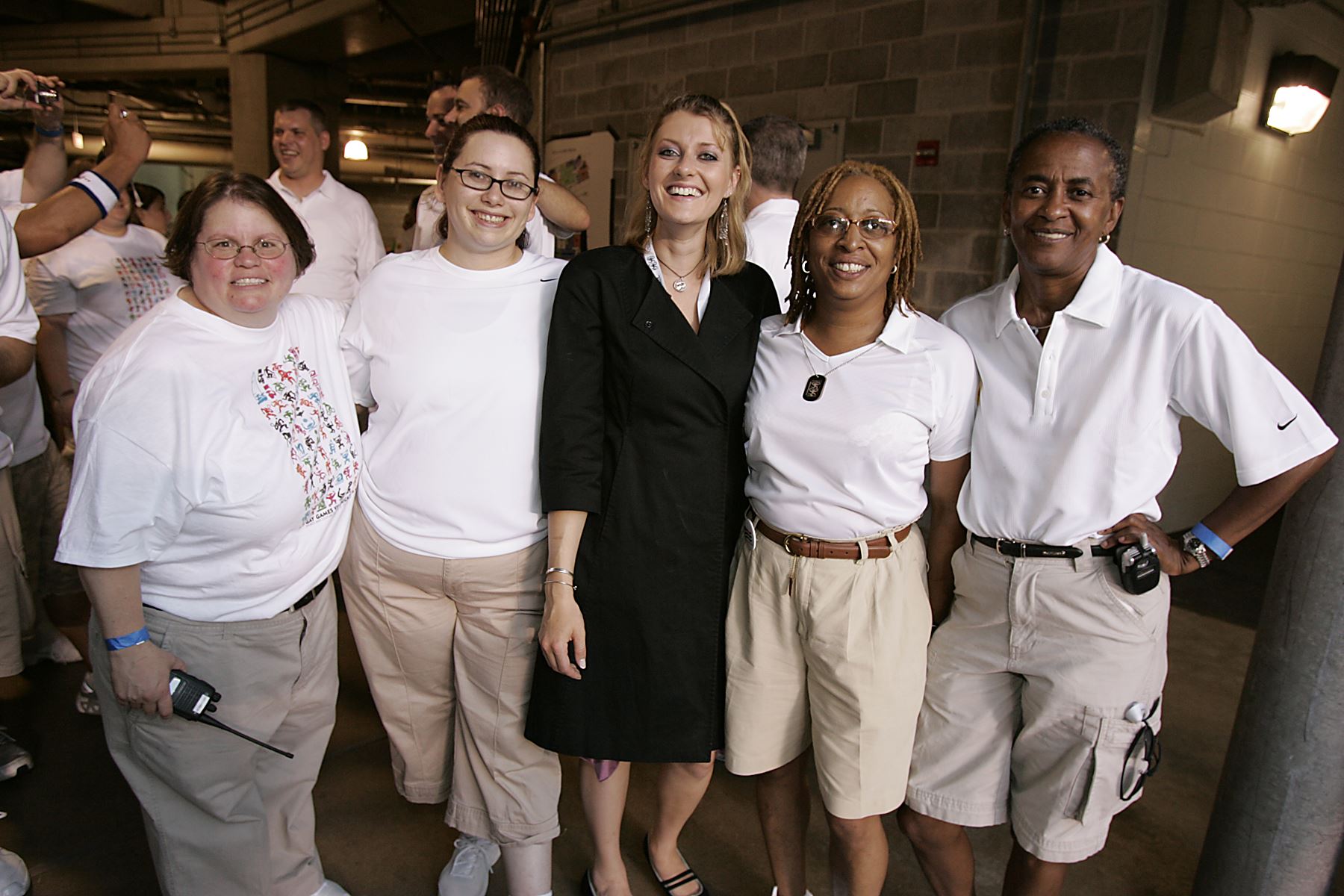
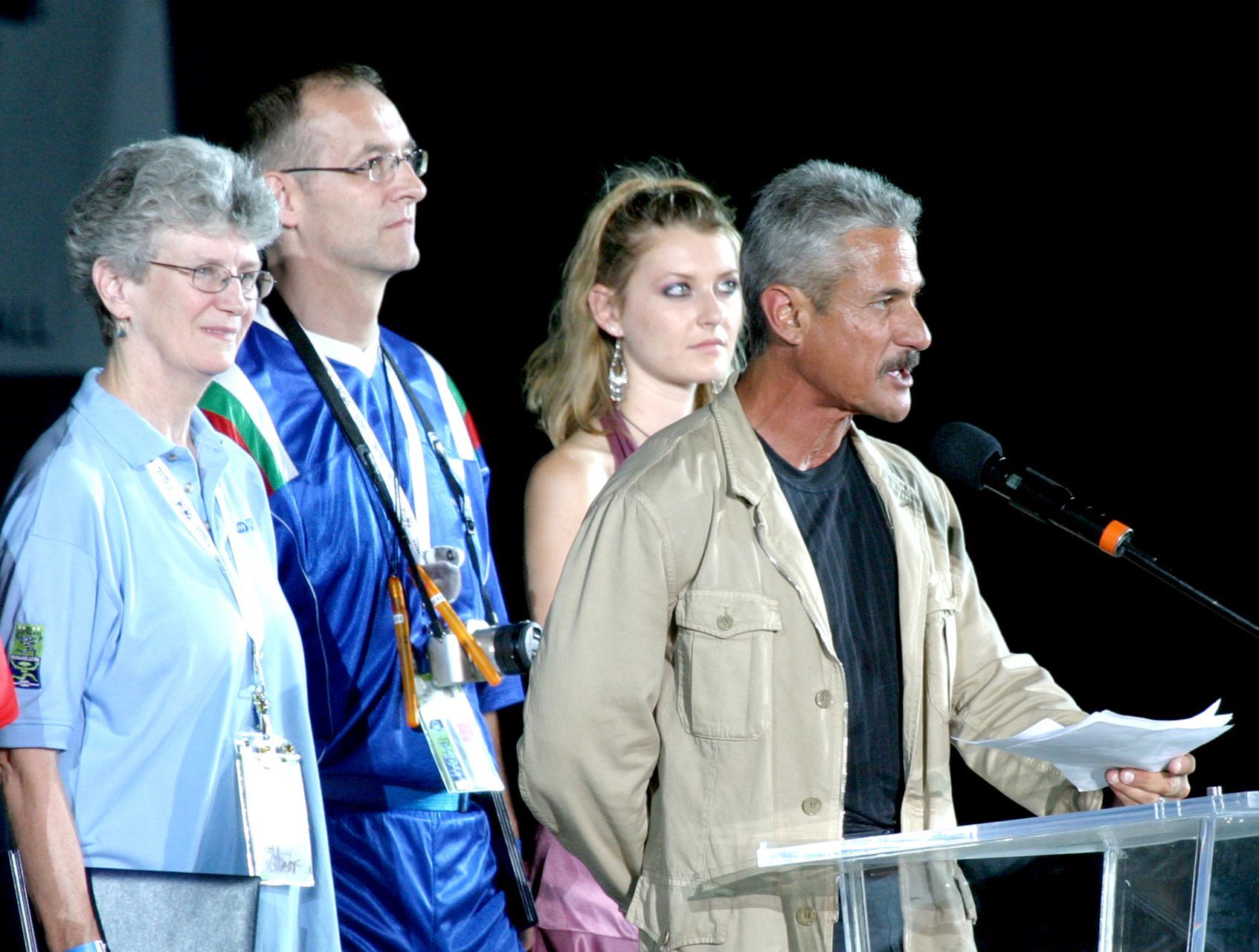
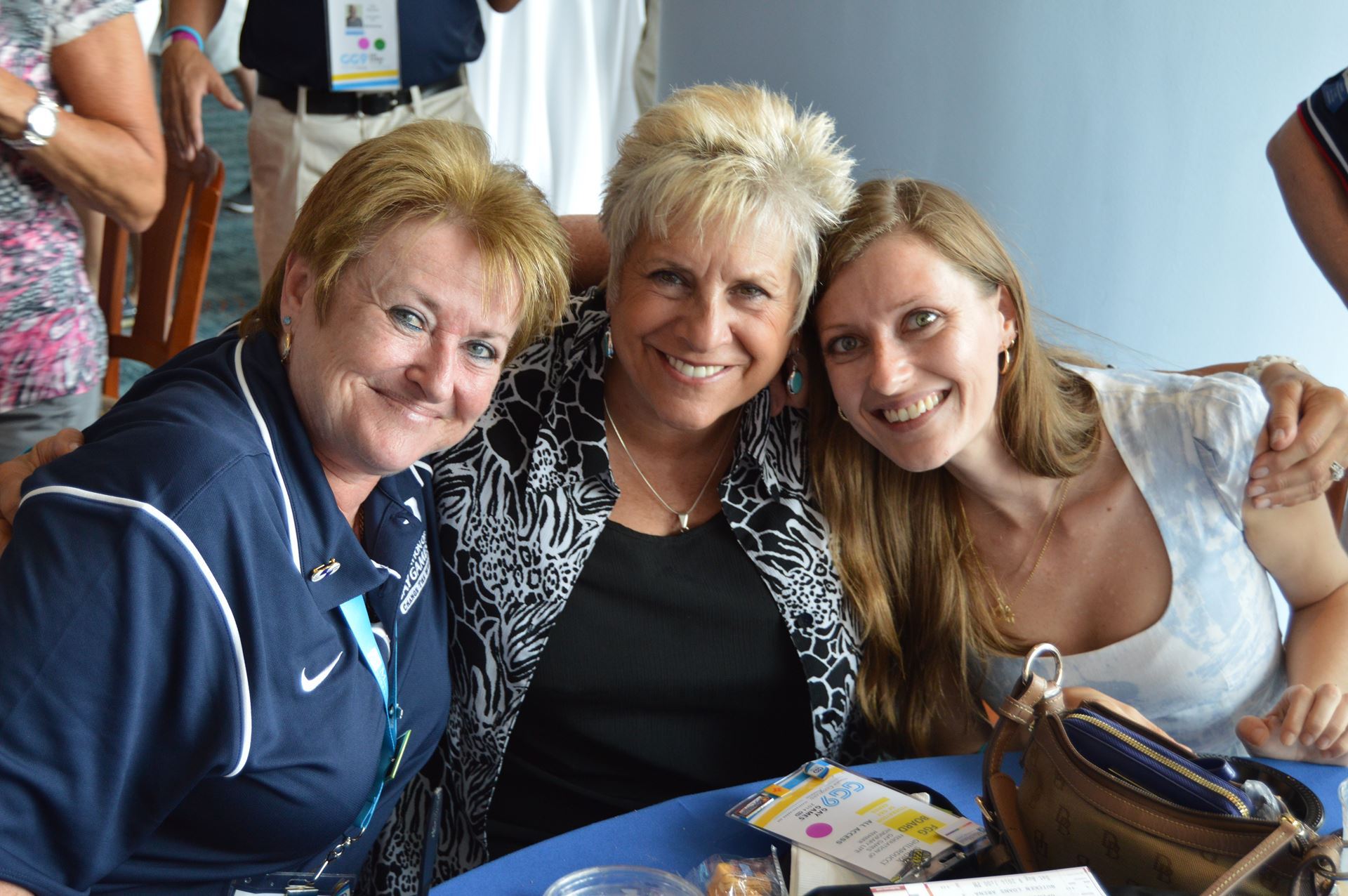
Jessica, a true "Child of the Gay Games" through the years. Photos: Beckermedia & Kelly Stevens
The Games started at a time when ignorance prevailed, and the LGBTQ community struggled to be understood in a dominant society. And while we’ve come a long way over the last 40 years and can take pride in the fact that the LGBTQ community has more visibility than ever before, we continue to have to fight against popular, but negative, stereotypes.
There are still many doors that need to be opened, and a lot to fight for. Today, we still see prejudice prevail, and people being discriminated against due to their gender, sexuality, religion, culture, and more. And not just in countries or communities deep-rooted in tradition, but in what was once considered forward-looking populaces as well.
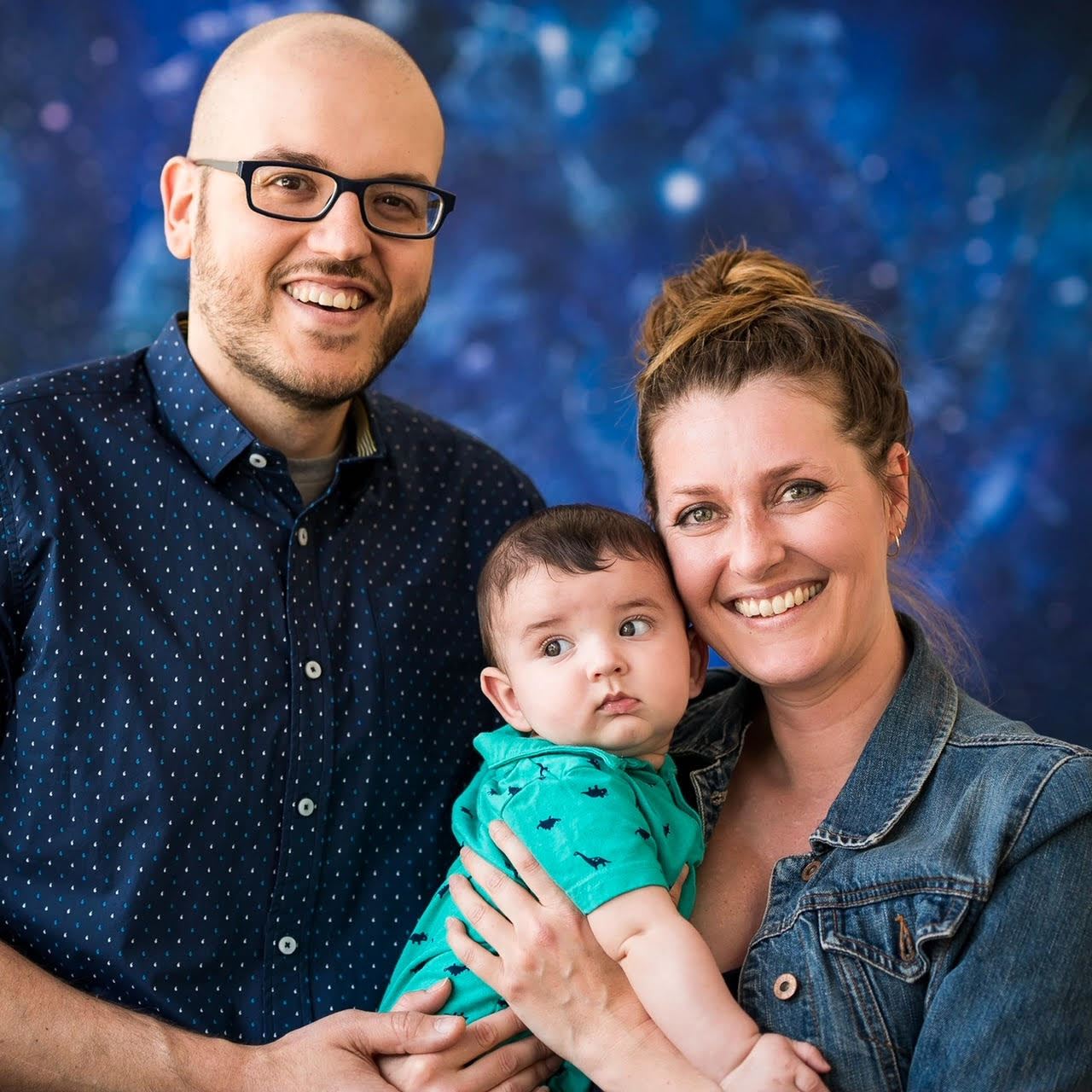
Jessica in 2022 with husband John J. Kopp III and son Logan Waddell Kopp. Not shown: daughter Mackenzie Waddell Kopp
In Florida, we see lawmakers trying to stop schools from teaching about the broad spectrum of sexuality. In Texas, we see them trying to penalize supporting parents of children going through gender dysphoria. Across America, we continue to see people claim a religious license to discriminate against the LGBTQ community. And in other countries, it is often worse. There are at least a dozen countries in the world that view same-sex relationships as a punishable offense, often resulting in death.
This is not okay. The people who live in these places, under these conditions are not okay. My father once said, “…think of yourself as a person first, and of your gender, class (we do live in a class structure) and heritage as simply the colors of your character” - a mentality many are severely lacking.
We are all different people, but that’s also what makes us beautiful and unique. It is what makes us, us. And it is these difference that should be celebrated, not used as ammunition to pit people against one another, and keep people complicit in a cis white male-dominated society.
From its inception, the Gay Games sought to celebrate and promote inclusion. To educate people through sport in a spirit of better understanding, eliminate stereotypes, and to provide everyone with an opportunity to engage with one another on an even playing field (literally).
But now, for the Games to continue to grow, we need to continue to broaden our reach. We need to extend our hands to new generations, and those who continue to be oppressed. We need to join forces with others to educate and to build relationships. To strengthen our own influence via the channels we know our communities engage in and consume content through the most, so that we can go up against the patriarchy. To challenge tradition, and de-condition those who believe in it from what they’ve been taught, then opening their eyes to the positive impact of acceptance.
We need to be present. We need to participate in conversation. We need to educate, to advocate and fight for what’s right. The Gay Games cannot afford to take a back seat on important topics pertaining to the world’s LGBTQ communities and their rights – but must unite and raise our voices so that we cannot be ignored. To move forward, we must work with and educate those that can help to influence stronger equal rights legislations, policies, and protections for our communities on a local and global scale.
I was lucky enough to be brought into and raised in a welcoming and loving environment, much in thanks to the Gay Games. And it is the Gay Games that can provide us a platform to help achieve this for the future as well.
Read the entire "Passing The Torch" series as it is posted daily HERE.
